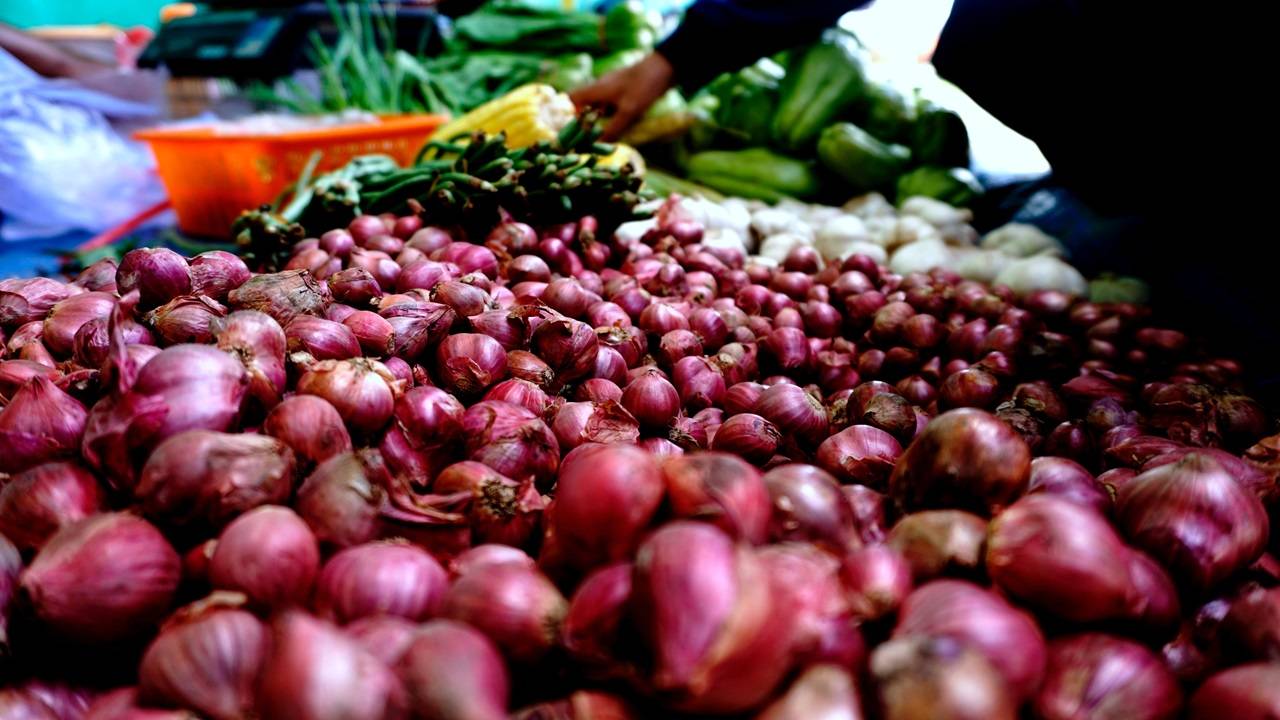
Due to the skyrocketing prices of onions, widespread alarm has arisen among consumers in several parts of India. The cost of this essential vegetable has surged to an astonishing Rs 80 per kilogram in Mumbai, prompting buyers to appeal to the government for urgent intervention.
Concerns are mounting that if this trend continues, onion prices might even breach the Rs 150 per kilogram mark, which would place an enormous strain on household budgets. As a result, consumers are eagerly requesting the government to take immediate steps to curb this steep price increase.
The crisis isn't limited to Mumbai alone; it has spread to other regions in the country, such as Agra in Uttar Pradesh. Manoj, a vegetable seller in Agra, explained that they are procuring onions from wholesale markets (mandis) at a rate of Rs 60 to 65 per kilogram. However, customers are reluctant to purchase onions due to the surging costs, exacerbating the issue.
In Kanpur, a vegetable seller named Rahul emphasized the urgency of government intervention and attributed the price surge to recent heavy rains. He pointed out that the excessive rainfall had led to the destruction of onion stocks, creating a severe supply shortage. Rahul anticipated that prices might continue to rise unless the government takes swift action.
Responding to the escalating onion prices, the government has introduced measures to mitigate the situation. They have implemented a Minimum Export Price (MEP) for onions and initiated the procurement of an additional 2 lakh tonnes of onions for buffer stocks. These actions aim to stabilize onion prices and ensure an adequate supply for domestic consumption.
To safeguard the availability of onions at reasonable prices for domestic consumers, the government has imposed a Minimum Export Price (MEP) of USD 800 per Metric Ton (MT) for onion exports, effective from October 29 to December 31, 2023. This MEP equates to approximately Rs 67 per kilogram.
Simultaneously, the government has announced the procurement of an extra 2 lakh tonnes of onions for the buffer stocks, in addition to the 5 lakh tonnes already procured.
Onions from this buffer have been consistently distributed since the second week of August in major consumption centers across the country and supplied to retail consumers at a reduced price of Rs 25 per kilogram through mobile vans operated by organizations like NCCF and NAFED. To date, around 1.70 lakh Metric Tons of onions have been distributed from the buffer.
The ongoing procurement and distribution of onions from the buffer serve to balance prices for consumers while ensuring fair returns for onion farmers. The imposition of an MEP of USD 800 per MT demonstrates the government's commitment to maintaining affordable onion prices for domestic consumers.
The government has also indicated that they have procured over 5.07 lakh metric tonnes of onions and plan to procure an additional 3 lakh metric tonnes in the near future, with the goal of keeping prices in check. This substantial procurement and distribution effort has covered wholesale markets in various states, including Delhi, Haryana, Karnataka, Odisha, Tamil Nadu, Uttar Pradesh, Chandigarh, West Bengal, Telangana, Uttarakhand, Bihar, Assam, and Uttarakhand. Officials have assured that the prices of onions are expected to start declining in the coming days.
It's worth noting that while the retail price of onions has been disrupted due to reduced arrivals in mandis (wholesale markets), it remains considerably lower than the prices witnessed in 2021 when onion prices surpassed the Rs 100 per kilogram mark. This suggests that the government's efforts are contributing to price stability, even in the face of challenges such as adverse weather conditions and supply shortages.









